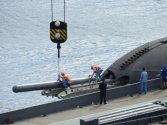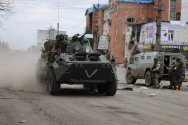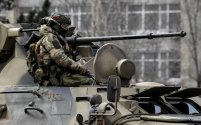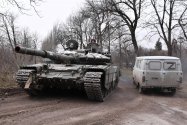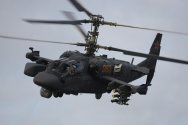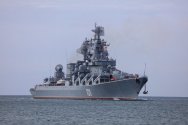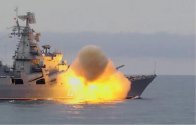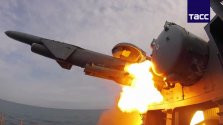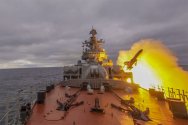First point. I saw the photos of the wreck of the single Su-35S the Ukrainians claim to have shot down. It has been turned into mush so good luck reverse engineering the radar from that. Also this isn't the 1980s anymore. You can likely change the N035 radar profile with little more than a software update. The factory which makes the N035 radar tubes is working on three shifts and is planning an expansion of their facilities. So clearly they do not think they need to stop production of it.And just to point out how crucial other funding will be - Russia lost Su-35S over Ukraine. The N035 radar has been captured. Now the entire modernization program for ~90 Su-30SM as well as all radars on ~128 Su-35s have to be changed at a time when Russia was struggling with production of complex electronics even before the current sanctions. Navy (apart from SSBNs) simply isn't the priority anymore and priority treatment was what was needed to resuscitate it.
With tanks/artillery/missiles and aircraft/SAMs Russia at least has something to work with under duress because a lot has been prepared and bought in recent 10+ years. Navy was lagging and it was waiting for the leap ahead that was promised.
With regards to the Russian Navy there were major show stoppers because of dependence on foreign imports. Most have been solved but some of them have not. The nuclear submarine program was not dependent on imports and that is why it is the naval program in best shape. They still have problems with producing high speed diesel engines for their smaller corvettes. But they have small naval turbine engine designs, designed to replace the Ukrainian ones used in the Zubr, that they could use if they wanted to. However it would require a new small corvette design. I am sure there will be lots of production hiccups with these sanctions. In particular the Russian civilian fishing fleet and merchant fleet will be affected. To solve those issues might require diverting manpower resources which would be used in the military programs. There might also be some additional hiccups for the military part of naval construction. But I doubt there will be anything major. As is the Russians had already developed a new generation of civilian diesel engines for smaller ships. They will need to expand on that.
Right now the major issue the Russian navy faces is the reorganization of the MIC in the naval sector is still ongoing. The Russian state is still pushing companies into United Shipbuilding Corporation. For example they have been in a protracted lawsuit against Zvezda. Which is the private company which manufactures the high speed diesel engines for the small corvettes and the gearboxes for the Admiral Gorshkov class. The company which manufactures the other large diesels used in the larger corvettes is another private company which makes engines for diesel trains and has some foreign capital. That mess will take some time to untangle. And there is also lack of governance, upgrades, and other issues at the shipyards. Some of it has been fixed. Some of it has not. But I think it is a matter of time until the issues are solved. The Amur shipyard in the Far East for example used to be an historic basket case and now is the best performing shipyard they have for the surface fleet. The Zvezda shipyard might face issues with their cooperation with South Korea in building LNG tankers. But if it does I suspect they will just replace the South Koreans with Chinese. I doubt the problems there would last more than, say, 2 years.
So yes the Russians still have issues with diesels. Marine diesels and other diesel engines. There was a lack of investment by the state and an over reliance on imports. But there are people with experience in designing diesels in Russia. A good example of this is if you look at their tank program. So I doubt they wouldn't solve the issues in the long term.

